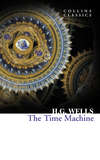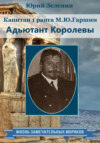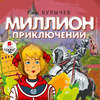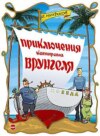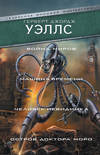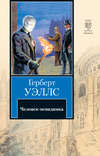Читать книгу: «The Time Machine»
THE TIME MACHINE
H. G. Wells

Copyright
William Collins
An imprint of HarperCollinsPublishers
1 London Bridge Street,
London SE1 9GF
This eBook edition published by William Collins in 2017
Life & Times section © HarperCollinsPublishers Ltd
Silvia Crompton asserts her moral right as author of the Life & Times section
Classic Literature: Words and Phrases adapted from
Collins English Dictionary
Cover by e-Digital Design
Cover illustration: © iStock
A catalogue record for this book is available from the British Library
All rights reserved under International and Pan-American Copyright Conventions. By payment of the required fees, you have been granted the non-exclusive, non-transferable right to access and read the text of this e-book on-screen. No part of this text may be reproduced, transmitted, down-loaded, decompiled, reverse engineered, or stored in or introduced into any information storage and retrieval system, in any form or by any means, whether electronic or mechanical, now known or hereinafter invented, without the express written permission of HarperCollins
Source ISBN: 9780008190033
Ebook Edition © January 2017 ISBN: 9780008190040
Version: 2016-12-20
Contents
Cover
Title Page
Copyright
History of William Collins
Life & Times
Chapter 1
Chapter 2
Chapter 3
Chapter 4
Chapter 5
Chapter 6
Chapter 7
Chapter 8
Chapter 9
Chapter 10
Chapter 11
Chapter 12
Epilogue
Classic Literature: Words and Phrases
Footnote
About the Publisher
History of William Collins
In 1819, millworker William Collins from Glasgow, Scotland, set up a company for printing and publishing pamphlets, sermons, hymn books, and prayer books. That company was Collins and was to mark the birth of HarperCollins Publishers as we know it today. The long tradition of Collins dictionary publishing can be traced back to the first dictionary William co-published in 1825, Greek and English Lexicon. Indeed, from 1840 onwards, he began to produce illustrated dictionaries and even obtained a licence to print and publish the Bible.
Soon after, William published the first Collins novel; however, it was the time of the Long Depression, where harvests were poor, prices were high, potato crops had failed, and violence was erupting in Europe. As a result, many factories across the country were forced to close down and William chose to retire in 1846, partly due to the hardships he was facing.
Aged 30, William’s son, William II, took over the business. A keen humanitarian with a warm heart and a generous spirit, William II was truly ‘Victorian’ in his outlook. He introduced new, up-to-date steam presses and published affordable editions of Shakespeare’s works and The Pilgrim’s Progress, making them available to the masses for the first time.
A new demand for educational books meant that success came with the publication of travel books, scientific books, encyclopedias, and dictionaries. This demand to be educated led to the later publication of atlases, and Collins also held the monopoly on scripture writing at the time.
In the 1860s Collins began to expand and diversify and the idea of ‘books for the millions’ was developed, although the phrase wasn’t coined until 1907. Affordable editions of classical literature were published, and in 1903 Collins introduced 10 titles in their Collins Handy Illustrated Pocket Novels. These proved so popular that a few years later this had increased to an output of 50 volumes, selling nearly half a million in their year of publication. In the same year, The Everyman’s Library was also instituted, with the idea of publishing an affordable library of the most important classical works, biographies, religious and philosophical treatments, plays, poems, travel, and adventure. This series eclipsed all competition at the time, and the introduction of paperback books in the 1950s helped to open that market and marked a high point in the industry.
HarperCollins is and has always been a champion of the classics, and the current Collins Classics series follows in this tradition – publishing classical literature that is affordable and available to all. Beautifully packaged, highly collectible, and intended to be reread and enjoyed at every opportunity.
Life & Times
About the Author
When we think of H. G. Wells, we think of ground-breaking science fiction, alien life forms, prophetic man-made contraptions and intergalactic warfare. His was a mind capable not only of imagining things that were literally out of this world, but also of prophesying how mankind’s flaws might turn these apocalyptic visions into everyday reality. Most remarkable of all, it was a mind that had grown from notably ordinary beginnings.
Herbert George Wells was born in 1866 in the London suburb of Bromley, where his father, a part-time professional cricketer, owned an unsuccessful sporting-goods shop. The family struggled financially, particularly after a leg injury terminated Wells’ father’s cricketing career, and at the age of fourteen Herbert had to leave school in order to earn his keep.
For four years, Wells moved from one fruitless apprenticeship to the next, before being offered the lifeline of a return to education. He had developed a love of literature during his youth, but now, thanks to a scholarship to the Royal College of Science in London, he was able to indulge his other passion: biology. One of his teachers there was the eminent anatomist T. H. Huxley, nicknamed ‘Darwin’s Bulldog’ for his outspoken support for Charles Darwin’s controversial theory of evolution. (Perhaps coincidentally, Huxley’s grandson Aldous would also go on to become an acclaimed science-fiction writer.)
Interesting Times
Alongside Huxley’s influence, Wells developed an interest in divisive topics as a member of the student debating society. And, without doubt, he was living in interesting times. By the 1880s, the notorious rigidity of Victorian society was giving way to contentious questions about evolution, religion and equality, and Wells soon became an outspoken critic of the social status quo. He felt society could be better and stronger – essentially, more evolved. He took an early interest in the newly established Fabian Society, a socialist organisation that was subsequently instrumental in founding the British Labour Party, and which included among its members satirical dramatist G. B. Shaw and suffragette Emmeline Pankhurst.
In the early years of the twentieth century, Wells fell out very publicly with the Fabians, accusing them of being an ineffectual ‘drawing-room society’ with ‘scattered members’. He wanted them to take a more gung-ho attitude to social reform, and thereby to rally new members to the cause. They in turn were embarrassed by his unconventional private life: he was twice-married and promiscuous, and had both legitimate and illegitimate children. Wells ultimately left the group in frustration, but in the meantime his mind had been awoken to the possibility that life on earth could quite easily become either immeasurably better or immeasurably worse, visions he elaborated upon in his fictional output during these early years of his political engagement.
Scientific Romance
H. G. Wells’ first book was his 1893 Textbook of Biology, which drew on his time as a science teacher, but just two years later he produced a debut novel that made him a household name and popularised a whole new genre of fiction. The Time Machine (1895) is the story of a scientist who travels to the very distant future, where he discovers that the division between rich and poor that was entrenched in nineteenth-century society has led to mankind splitting into two distinct species. The novel was a thinly veiled warning based on Wells’ political views, but its remarkable claim to fame is that it popularised the concept of ‘time travel’ by ‘time machine’: both terms coined by Wells, and now considered staples of science fiction.
Nineteenth-century literature, propelled in part by the swift technological advances of the Industrial Revolution, had seen a gradual shift from Gothic horror – with its ghost stories and vampires – to novels that dealt with man-made futuristic inventions. Mary Shelley’s Frankenstein (1818) is now considered an early work of science fiction, but the genre came into its own in 1864 with the publication of Jules Verne’s Journey to the Centre of the Earth. Verne dominated the genre for the next two decades, but the 1890s belong firmly to H. G. Wells. Following his success with The Time Machine, Wells published, in quick succession, bestsellers including The Island of Doctor Moreau (1896), The Invisible Man (1897) and The War of the Worlds (1898). Both he and Jules Verne have subsequently been declared ‘The Father of Science Fiction’, even if, in their day, the genre was more commonly known as scientific romance.
Wells’ novels of the 1890s pushed the boundaries of scientific imagination, making fantastical notions such as genetic engineering, invisibility and extraterrestrial life forms seem alarmingly real. The War of the Worlds boasts some of the earliest fictional ‘Martians’ and describes the as-yet-uninvented laser, cornerstones too of modern science fiction. But beneath the surface, these novels continued to present nightmarish visions of a future defined by selfishness, inequality and conflict: qualities Wells hoped humankind might yet do away with.
The Time Machine
Wells’ debut novel, published in 1895, is among his more overtly political, offering a chilling vision of a future in which class-obsessed humankind has devolved into two grotesquely distinct species. This is perhaps little wonder: the story began life almost a decade earlier, around the time of Wells’ enthusiastic adoption of socialist ideas. In 1888 he had published a short story in The Science School Journal entitled ‘The Chronic Argonauts’ – this was before he hit on the term ‘Time Traveller’ – in which a professor devises a curious machine that allows him to move back and forth in time.
There is some debate as to whether Wells invented the notion of time travel by man-made contraption, but he was certainly among the very first to conceive of it. Before the 1880s, time travel tended to occur to protagonists in dreams or via some sort of supernatural visitation: Scrooge’s three ghosts in Dickens’ A Christmas Carol (1843), for instance.
When Wells returned to his work in progress, he expanded upon the professor’s findings in the future. Transported to the year 802,701, the newly named Time Traveller encounters the Eloi, who at first strike him as a simple, peaceful civilisation; one for whom intelligence is unimportant and work is non-existent. It is only when his time machine is stolen that the Time Traveller discovers the backbone of Eloi society: the subterranean Morlocks, who shun daylight and toil underground in order to keep the Eloi in the lazy comfort to which they have become accustomed. His initial appraisal that the ‘upper-class’ Eloi are being sustained by the hideous ‘working-class’ Morlocks is called into question, however, when he learns that the helpless Eloi are the Morlocks’ main source of food …
Ultimately it seems irrelevant which of the two species has the upper hand: The Time Machine is a damning premonition of a future in which the Victorian class system has run rampant at the expense of common humanity.
Paradise Lost
For all the dystopian horror of his most famous novels, Wells was, in his predictions for mankind’s future, an optimist – initially, at least. He felt at heart that humanity was on the brink of something wonderful. His 1901 work Anticipations of the Reaction of Mechanical and Scientific Progress upon Human Life and Thought set out a vision of the future in which warfare was obsolete, nations having synthesised into large peaceful blocs that treated one another with ‘intelligent sympathy’. He predicted that, by the end of the twentieth century, this social revolution would have forever assured ‘the final peace of the world’.
The First World War shook his belief, although Wells remained convinced that the reality of all-out warfare might yet sober mankind into long-term peace. In his Outline of History (1920), he defined human history as ‘more and more a race between education and catastrophe’, but predicted that progress would prevail, be it ‘clumsily or smoothly’.
By the outbreak of the Second World War – which he had predicted with eerie accuracy in his 1933 novel The Shape of Things to Come – Wells was less optimistic. It is apt that his final work, composed in 1945 and foreseeing the collapse and destruction of humanity, was entitled Mind at the End of Its Tether. He felt he had given ample warnings that had gone unheeded. Indeed, reflecting in 1941 on predictions he had made that had come horribly true, Wells suggested that his epitaph should simply read: ‘I told you so. You damned fools.’ When the end came, in 1946, his ashes were scattered at sea.
CHAPTER 1
The Time Traveller (for so it will be convenient to speak of him) was expounding a recondite matter to us. His grey eyes shone and twinkled, and his usually pale face was flushed and animated. The fire burned brightly, and the soft radiance of the incandescent lights in the lilies of silver caught the bubbles that flashed and passed in our glasses. Our chairs, being his patents, embraced and caressed us rather than submitted to be sat upon, and there was that luxurious after-dinner atmosphere when thought roams gracefully free of the trammels of precision. And he put it to us in this way—marking the points with a lean forefinger—as we sat and lazily admired his earnestness over this new paradox (as we thought it) and his fecundity.
‘You must follow me carefully. I shall have to controvert one or two ideas that are almost universally accepted. The geometry, for instance, they taught you at school is founded on a misconception.’
‘Is not that rather a large thing to expect us to begin upon?’ said Filby, an argumentative person with red hair.
‘I do not mean to ask you to accept anything without reasonable ground for it. You will soon admit as much as I need from you. You know of course that a mathematical line, a line of thickness nil, has no real existence. They taught you that? Neither has a mathematical plane. These things are mere abstractions.’
‘That is all right,’ said the Psychologist.
‘Nor, having only length, breadth, and thickness, can a cube have a real existence.’
‘There I object,’ said Filby. ‘Of course a solid body may exist. All real things—’
‘So most people think. But wait a moment. Can an instantaneous cube exist?’
‘Don’t follow you,’ said Filby.
‘Can a cube that does not last for any time at all, have a real existence?’
Filby became pensive. ‘Clearly,’ the Time Traveller proceeded, ‘any real body must have extension in four directions: it must have Length, Breadth, Thickness, and—Duration. But through a natural infirmity of the flesh, which I will explain to you in a moment, we incline to overlook this fact. There are really four dimensions, three which we call the three planes of Space, and a fourth, Time. There is, however, a tendency to draw an unreal distinction between the former three dimensions and the latter, because it happens that our consciousness moves intermittently in one direction along the latter from the beginning to the end of our lives.’
‘That,’ said a very young man, making spasmodic efforts to relight his cigar over the lamp; ‘that … very clear indeed.’
‘Now, it is very remarkable that this is so extensively overlooked,’ continued the Time Traveller, with a slight accession of cheerfulness. ‘Really this is what is meant by the Fourth Dimension, though some people who talk about the Fourth Dimension do not know they mean it. It is only another way of looking at Time. There is no difference between Time and any of the three dimensions of Space except that our consciousness moves along it. But some foolish people have got hold of the wrong side of that idea. You have all heard what they have to say about this Fourth Dimension?’
‘I have not,’ said the Provincial Mayor.
‘It is simply this. That Space, as our mathematicians have it, is spoken of as having three dimensions, which one may call Length, Breadth, and Thickness, and is always definable by reference to three planes, each at right angles to the others. But some philosophical people have been asking why three dimensions particularly—why not another direction at right angles to the other three?—and have even tried to construct a Four-Dimension geometry. Professor Simon Newcomb was expounding this to the New York Mathematical Society only a month or so ago. You know how on a flat surface, which has only two dimensions, we can represent a figure of a three-dimensional solid, and similarly they think that by models of three dimensions they could represent one of four—if they could master the perspective of the thing. See?’
‘I think so,’ murmured the Provincial Mayor; and, knitting his brows, he lapsed into an introspective state, his lips moving as one who repeats mystic words. ‘Yes, I think I see it now,’ he said after some time, brightening in a quite transitory manner.
‘Well, I do not mind telling you I have been at work upon this geometry of Four Dimensions for some time. Some of my results are curious. For instance, here is a portrait of a man at eight years old, another at fifteen, another at seventeen, another at twenty-three, and so on. All these are evidently sections, as it were, Three-Dimensional representations of his Four-Dimensioned being, which is a fixed and unalterable thing.
‘Scientific people,’ proceeded the Time Traveller, after the pause required for the proper assimilation of this, ‘know very well that Time is only a kind of Space. Here is a popular scientific diagram, a weather record. This line I trace with my finger shows the movement of the barometer. Yesterday it was so high, yesterday night it fell, then this morning it rose again, and so gently upward to here. Surely the mercury did not trace this line in any of the dimensions of Space generally recognized? But certainly it traced such a line, and that line, therefore, we must conclude was along the Time-Dimension.’
‘But,’ said the Medical Man, staring hard at a coal in the fire, ‘if Time is really only a fourth dimension of Space, why is it, and why has it always been, regarded as something different? And why cannot we move in Time as we move about in the other dimensions of Space?’
The Time Traveller smiled. ‘Are you sure we can move freely in Space? Right and left we can go, backward and forward freely enough, and men always have done so. I admit we move freely in two dimensions. But how about up and down? Gravitation limits us there.’
‘Not exactly,’ said the Medical Man. ‘There are balloons.’
‘But before the balloons, save for spasmodic jumping and the inequalities of the surface, man had no freedom of vertical movement.’
‘Still they could move a little up and down,’ said the Medical Man.
‘Easier, far easier down than up.’
‘And you cannot move at all in Time, you cannot get away from the present moment.’
‘My dear sir, that is just where you are wrong. That is just where the whole world has gone wrong. We are always getting away from the present moment. Our mental existences, which are immaterial and have no dimensions, are passing along the Time-Dimension with a uniform velocity from the cradle to the grave. Just as we should travel down if we began our existence fifty miles above the earth’s surface.’
‘But the great difficulty is this,’ interrupted the Psychologist. ‘You can move about in all directions of Space, but you cannot move about in Time.’
‘That is the germ of my great discovery. But you are wrong to say that we cannot move about in Time. For instance, if I am recalling an incident very vividly I go back to the instant of its occurrence: I become absent-minded, as you say. I jump back for a moment. Of course we have no means of staying back for any length of Time, any more than a savage or an animal has of staying six feet above the ground. But a civilized man is better off than the savage in this respect. He can go up against gravitation in a balloon, and why should he not hope that ultimately he may be able to stop or accelerate his drift along the Time-Dimension, or even turn about and travel the other way?’
‘Oh, this,’ began Filby, ‘is all—’
‘Why not?’ said the Time Traveller.
‘It’s against reason,’ said Filby.
‘What reason?’ said the Time Traveller.
‘You can show black is white by argument,’ said Filby, ‘but you will never convince me.’
‘Possibly not,’ said the Time Traveller. ‘But now you begin to see the object of my investigations into the geometry of Four Dimensions. Long ago I had a vague inkling of a machine—’
‘To travel through Time!’ exclaimed the Very Young Man.
‘That shall travel indifferently in any direction of Space and Time, as the driver determines.’
Filby contented himself with laughter.
‘But I have experimental verification,’ said the Time Traveller.
‘It would be remarkably convenient for the historian,’ the Psychologist suggested. ‘One might travel back and verify the accepted account of the Battle of Hastings, for instance!’
‘Don’t you think you would attract attention?’ said the Medical Man.
‘Our ancestors had no great tolerance for anachronisms.’
‘One might get one’s Greek from the very lips of Homer and Plato,’ the Very Young Man thought.
‘In which case they would certainly plough you for the Little-go. The German scholars have improved Greek so much.’
‘Then there is the future,’ said the Very Young Man. ‘Just think! One might invest all one’s money, leave it to accumulate at interest, and hurry on ahead!’
‘To discover a society,’ said I, ‘erected on a strictly communistic basis.’
‘Of all the wild extravagant theories!’ began the Psychologist.
‘Yes, so it seemed to me, and so I never talked of it until—’
‘Experimental verification!’ cried I. ‘You are going to verify that?’
‘The experiment!’ cried Filby, who was getting brain-weary.
‘Let’s see your experiment anyhow,’ said the Psychologist, ‘though it’s all humbug, you know.’
The Time Traveller smiled round at us. Then, still smiling faintly, and with his hands deep in his trousers pockets, he walked slowly out of the room, and we heard his slippers shuffling down the long passage to his laboratory.
The Psychologist looked at us. ‘I wonder what he’s got?’
‘Some sleight-of-hand trick or other,’ said the Medical Man, and Filby tried to tell us about a conjurer he had seen at Burslem; but before he had finished his preface the Time Traveller came back, and Filby’s anecdote collapsed.
The thing the Time Traveller held in his hand was a glittering metallic framework, scarcely larger than a small clock, and very delicately made. There was ivory in it, and some transparent crystalline substance. And now I must be explicit, for this that follows—unless his explanation is to be accepted—is an absolutely unaccountable thing. He took one of the small octagonal tables that were scattered about the room, and set it in front of the fire, with two legs on the hearthrug. On this table he placed the mechanism. Then he drew up a chair, and sat down. The only other object on the table was a small shaded lamp, the bright light of which fell upon the model. There were also perhaps a dozen candles about, two in brass candlesticks upon the mantel and several in sconces, so that the room was brilliantly illuminated. I sat in a low arm-chair nearest the fire, and I drew this forward so as to be almost between the Time Traveller and the fireplace. Filby sat behind him, looking over his shoulder. The Medical Man and the Provincial Mayor watched him in profile from the right, the Psychologist from the left. The Very Young Man stood behind the Psychologist. We were all on the alert. It appears incredible to me that any kind of trick, however subtly conceived and however adroitly done, could have been played upon us under these conditions.
The Time Traveller looked at us, and then at the mechanism. ‘Well?’ said the Psychologist.
‘This little affair,’ said the Time Traveller, resting his elbows upon the table and pressing his hands together above the apparatus, ‘is only a model. It is my plan for a machine to travel through time. You will notice that it looks singularly askew, and that there is an odd twinkling appearance about this bar, as though it was in some way unreal.’ He pointed to the part with his finger. ‘Also, here is one little white lever, and here is another.’
The Medical Man got up out of his chair and peered into the thing.
‘It’s beautifully made,’ he said.
‘It took two years to make,’ retorted the Time Traveller. Then, when we had all imitated the action of the Medical Man, he said: ‘Now I want you clearly to understand that this lever, being pressed over, sends the machine gliding into the future, and this other reverses the motion. This saddle represents the seat of a time traveller. Presently I am going to press the lever, and off the machine will go. It will vanish, pass into future Time, and disappear. Have a good look at the thing. Look at the table too, and satisfy yourselves there is no trickery. I don’t want to waste this model, and then be told I’m a quack.’
There was a minute’s pause perhaps. The Psychologist seemed about to speak to me, but changed his mind. Then the Time Traveller put forth his finger towards the lever. ‘No,’ he said suddenly. ‘Lend me your hand.’ And turning to the Psychologist, he took that individual’s hand in his own and told him to put out his forefinger. So that it was the Psychologist himself who sent forth the model Time Machine on its interminable voyage. We all saw the lever turn. I am absolutely certain there was no trickery. There was a breath of wind, and the lamp flame jumped. One of the candles on the mantel was blown out, and the little machine suddenly swung round, became indistinct, was seen as a ghost for a second perhaps, as an eddy of faintly glittering brass and ivory; and it was gone—vanished! Save for the lamp the table was bare.
Everyone was silent for a minute. Then Filby said he was damned.
The Psychologist recovered from his stupor, and suddenly looked under the table. At that the Time Traveller laughed cheerfully. ‘Well?’ he said, with a reminiscence of the Psychologist. Then, getting up, he went to the tobacco jar on the mantel, and with his back to us began to fill his pipe.
We stared at each other. ‘Look here,’ said the Medical Man, ‘are you in earnest about this? Do you seriously believe that that machine has travelled into time?’
‘Certainly,’ said the Time Traveller, stooping to light a spill at the fire. Then he turned, lighting his pipe, to look at the Psychologist’s face. (The Psychologist, to show that he was not unhinged, helped himself to a cigar and tried to light it uncut.) ‘What is more, I have a big machine nearly finished in there’—he indicated the laboratory—’and when that is put together I mean to have a journey on my own account.’
‘You mean to say that that machine has travelled into the future?’ said Filby.
‘Into the future or the past—I don’t, for certain, know which.’
After an interval the Psychologist had an inspiration. ‘It must have gone into the past if it has gone anywhere,’ he said.
‘Why?’ said the Time Traveller.
‘Because I presume that it has not moved in space, and if it travelled into the future it would still be here all this time, since it must have travelled through this time.’
‘But,’ I said, ‘If it travelled into the past it would have been visible when we came first into this room; and last Thursday when we were here; and the Thursday before that; and so forth!’
‘Serious objections,’ remarked the Provincial Mayor, with an air of impartiality, turning towards the Time Traveller.
‘Not a bit,’ said the Time Traveller, and, to the Psychologist: ‘You think. You can explain that. It’s presentation below the threshold, you know, diluted presentation.’
‘Of course,’ said the Psychologist, and reassured us. ‘That’s a simple point of psychology. I should have thought of it. It’s plain enough, and helps the paradox delightfully. We cannot see it, nor can we appreciate this machine, any more than we can the spoke of a wheel spinning, or a bullet flying through the air. If it is travelling through time fifty times or a hundred times faster than we are, if it gets through a minute while we get through a second, the impression it creates will of course be only one-fiftieth or one-hundredth of what it would make if it were not travelling in time. That’s plain enough.’ He passed his hand through the space in which the machine had been. ‘You see?’ he said, laughing.
We sat and stared at the vacant table for a minute or so. Then the Time Traveller asked us what we thought of it all.
Бесплатный фрагмент закончился.
Начислим
+8
Покупайте книги и получайте бонусы в Литрес, Читай-городе и Буквоеде.
Участвовать в бонусной программе
